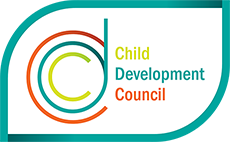Introduction
Acknowledgement
The Child Development Council acknowledges and respects Aboriginal peoples as the state’s first peoples and nations, recognises Aboriginal peoples as traditional owners and occupants of land and water in South Australia, and that their spiritual, social, cultural and economic practices come from their traditional lands and waters, that they maintain their cultural and heritage beliefs, languages and laws which are of ongoing importance, and that they have made and continue to make a unique and irreplaceable contribution to the state.
Language and definitions
The term ‘birth to 18 years’ includes all children and young people under 18 years, however, all other age ranges used in this report are inclusive of both the youngest and oldest age, eg ‘10 to 17 years’ includes both ten and 17-year-old children and young people.
The term ‘Aboriginal’ is used respectfully to refer to Australian Aboriginal and/or Torres Strait Islander children, young people, adults, families and communities.
Notes and data acknowledgements
South Australia’s 2023 Report Card uses routinely collected and publicly available data, to publish the latest available information from a variety of state and national sources to track progress. The publicly available data, used to measure outcomes is typically aligned with state and national reporting standards and agreed-upon definitions. It is therefore critical for the reader to consider the context in which the information was captured to avoid misinterpretation.
The Report Card is complemented by a comprehensive Data and Technical Report, offering detailed technical specifications for the measures outlined in the Outcomes Framework. Additionally, it serves as a comprehensive guide for understanding and interpreting the report.
The cutoff date for data published in the 2023 Report Card was October 16, 2023. The reported measures within the dimensions are categorised into two sections: data received before the cutoff date, representing ‘what we know from the most recent data’, and an archive of information for which we did not receive an update, labelled ‘data needed to
complete the picture’. The 2023 volume is intended to serve as the final standalone document version. From 2024, the Report Card will transition to an online website, allowing readers enhance accessibility to relevant information and improved publication of the most recent data as it becomes available.
The term ‘Margin of Error’ abbreviated to ‘MoE’ is used to indicate when survey results should be interpreted with caution because of large confidence intervals. The use of summarised secondary data may contribute to data gaps, data lags and issues of data quality.
The Child Development Council appreciates the assistance and support from various national and state agencies in providing data for this report card. These agencies include the National Disability Insurance Agency and, in South Australia, the Attorney General’s Department, Department for Education, Department for Infrastructure and Transport, and Department for Health and Wellbeing.
